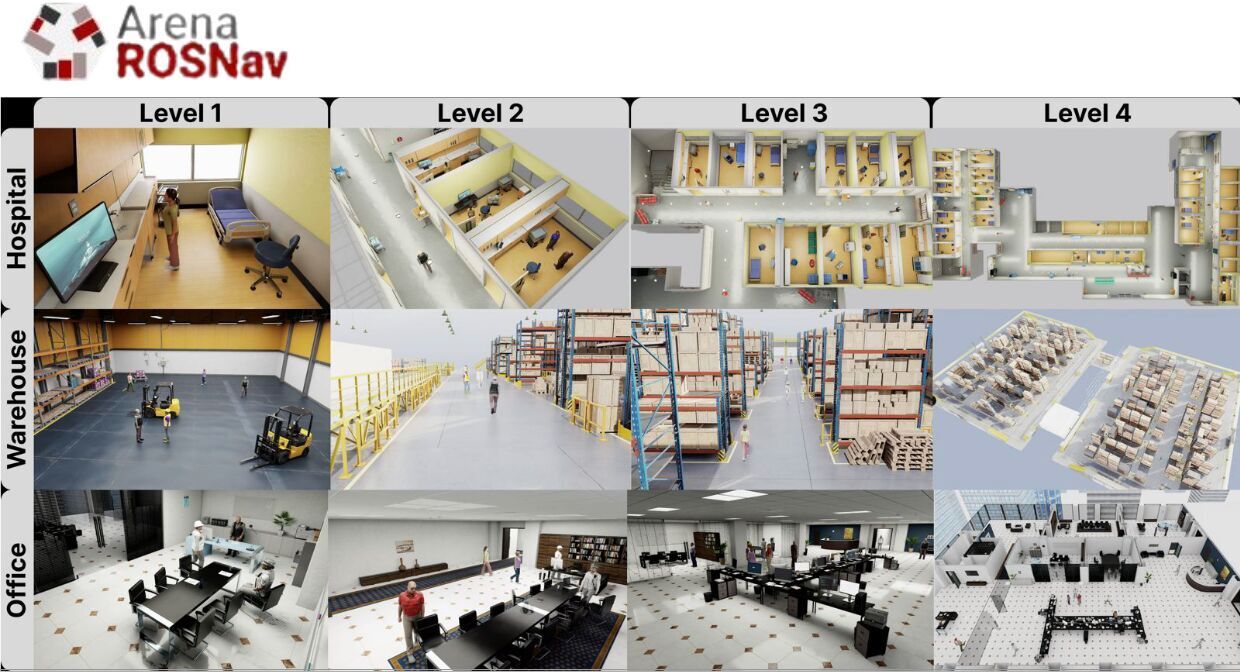For more details about the challenge, see: Arena Challenge 2025
As part of the workshop Advances in Social Navigation: Planning, HRI and Beyond, the Arena 2025 challenge aims to benchmark recent state of the art social navigation approaches for navigation in crowded collaborative environments. We utilize our arena platform to host the competition. The Arena Challenge 2025 invites participants to tackle the complexities of social navigation in crowded, dynamic, and collaborative environments. The goal is to develop autonomous navigation solutions capable of efficiently maneuvering through environments filled with pedestrians, dynamic obstacles, and realistic social interactions.
Participants are required to design and develop navigation algorithms that can handle:
- Dynamic and Complex Environments: Navigate through environments populated with moving pedestrians and unpredictable social dynamics.
- Socially Aware Navigation: Respect social norms, avoid collisions, and interact safely with dynamic groups.
- Scalable Difficulty Levels: Overcome environments that gradually increase in complexity and difficulty.
The Arena Challenge dataset comprises 12 pre-generated dynamic navigation environments, ranging from moderately busy spaces to highly congested and complex scenarios, and an environment generator that can produce novel dynamic social environments. The task is to navigate a standardized mobile robot from a predefined start to a goal location while efficiently maneuvering through dynamic crowds and avoiding collisions.
The robot is standardized with a 2D LiDAR sensor, a differential drive system with a maximum speed of 2 m/s, and onboard computational resources provided by the organizers. Participants will need to develop navigation systems that consume the standardized LiDAR input, perform all computation onboard using the provided resources, and output motion commands to drive the robot. Participants are welcome to use any approaches to tackle the social navigation problem, such as classical sampling-based or optimization-based planners, end-to-end learning techniques, or hybrid approaches.
The following infrastructure will be provided by the competition organizers:
- The 12 pre-generated dynamic navigation environments. See Figure.
- The dynamic environment generator to produce novel social navigation scenarios
- Baseline navigation systems including classical approaches (DWB, TEB) and our ROSNAV agent
- A training pipeline running the standardized mobile robot in either Gazebo simulation or Isaac Sim with Robot Operating System (ROS) Noetic on Ubuntu 22.04, with the option of being containerized in Docker or Singularity containers for fast and standardized setup and evaluation
- A standardized evaluation pipeline to compete against other navigation systems

For more details about the challenge, see: Arena Challenge 2025